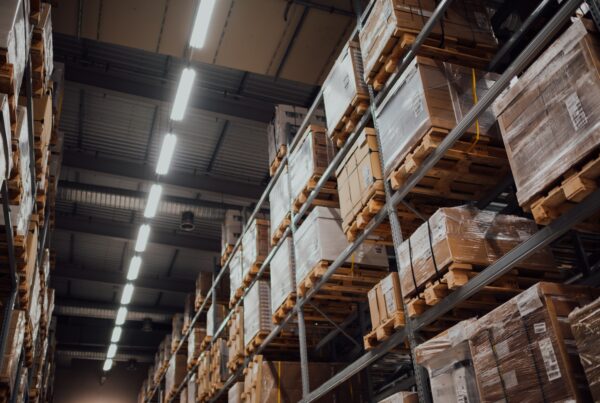Women are still rare in the logistics and transport sector. Due to a lack of role models and a misleading image, only a few feel addressed by one of the many different logistical activities. At the same time, the logistics industry has a high systemic relevance both for the economy and the society in Germany. Since many processes run in the background, logistics is not really visible or tangible for a lot of people.
Women in Logistics
According to the German Logistics Association (BVL) the share of female logisticians in 2017 was only 20.7 per cent - the figure illustrates the big difference. And even of these 20.7%, most women tend to be employed in classic office jobs such as purchasing or human resources. Traditional male apprenticeship occupations such as professional driver or warehouse logistics specialist continue to be performed almost exclusively by men. It has been shown that a balanced ratio of women and men in a company has positive effects on the working atmosphere: Employee motivation and satisfaction can be raised considerably through diversity and thus also increase the company's success.
While things still look rather bad for apprenticeships, there is a ray of hope for career opportunities with regard to logistics degree programmes: A small increase of women indicates that the interest of female candidates has definitely increased here - however, it is not yet possible to speak of a balanced ratio or even equality of opportunity.
The grey Image
The logistics sector does not necessarily present an exciting picture for most people - thinking of transport vehicles and huge warehouses. Still too little is known about Germany's third largest economic sector and many people are not aware of the central importance of logistics. For women it is even more difficult because there is no identification with female role models who are successful in the logistics industry and could serve as an inspiration.
As there is a shortage of young people in logistics at the same time, there are numerous vacancies - positions that could easily be filled by well-qualified women.
The current situation shows that a rethink in the perception of the logistics industry must take place among both women and men. Indeed, many logistics companies offer exciting positions and have adapted their corporate culture to new working conditions. For example, many logistics service providers offer flexible working hours or forms of work (e.g. home office) for women or young talents so that work and family can be better combined.
New Opportunities for Logistics
Digitisation processes trigger major changes. They bring challenges and new opportunities for women. Because the digital transformation of companies increases new working conditions that do not require physical muscle power - the old argument of "physical advantages" can thus easily be devalued. Digitisation also drives the progression of networked work structures, with an increasing need for communicative and social skills - skills that are more often brought along by women than by men. In general, there is now a great potential of opportunities so that even well-qualified women could close the personnel bottlenecks in the specialist and management areas.
Young women today are well qualified and trained and can demonstrate a high level of performance. Through different points of view they make it possible to create a new culture and working environment in logistics companies. A balanced mix - especially at management level - has proven to be very positive and benefits everyone. And that is precisely why companies should make more efforts to recruit women and draw more attention to the general relevance of logistics.
Warehousing1 also attaches great importance to equal opportunities and an open corporate culture so that no discrimination on the basis of gender or origin is permitted. We also support important issues such as sustainability and are certified according to ISO 14001. In this way, we want to offer our employees as well as our partners high quality. As a partner, you can access a network of over 500 decentralized warehouse locations in Germany and Europe. The shorter transport distances increase not only time and resources, but also protect the environment and at the same time unused storage space can be passed on. Please arrange an initial meeting today to discuss your options.



